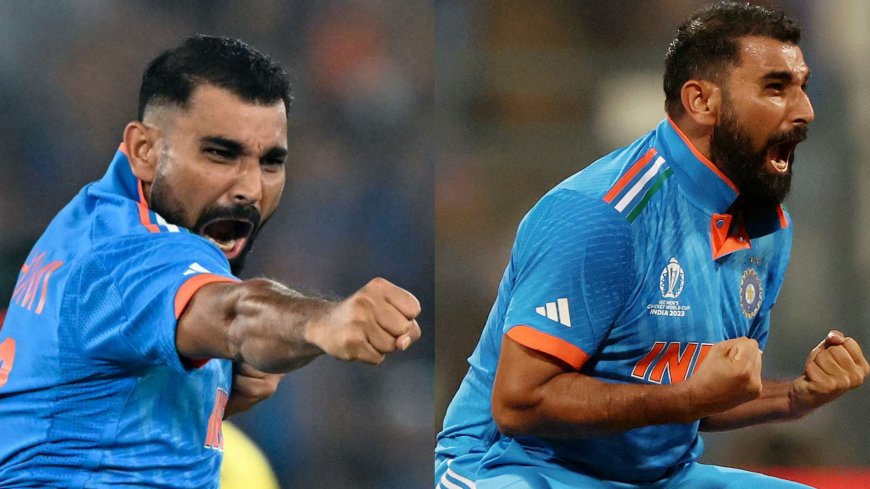ICC Champions Trophy: Tim Southee and Vernon Philander Supports Mohammed Shami
Both the former bowlers supported Mohammed Shami in revoking the ban on Saliva.

Dubai (India) March 6: Indian fast bowler Mohammad Shami got much needed support from Tim Southee and Vernon Philander over his demands. He was demanding the ICC to allow the players to use saliva for shining the ball. The ban on saliva was happened in the year 2020 because it was the period of Covid 19 pandemic. ICC made this rule permanent in the year 2022. Fast bowlers used saliva for shining the ball as they could get reverse swing but after the ban it became difficult for the bowlers.
“We are trying [to get reverse swing], but the usage of saliva on the ball is not allowed,” Shami told reporters after India’s four-wicket win over Australia in the Champions Trophy semi-final. “We keep appealing that we should be allowed to use saliva so that we can bring reverse swing back into the game and it becomes interesting.”
New Zealand great Southee, who retired from international cricket recently, said something needs to be done in favour of the bowlers to stop the batting side from scoring big scores in white-ball cricket. Southee’s comments came after New Zealand put 362 for 6 on the board in the second semi-final of the Champions Trophy against South Africa.
“That was a rule brought around Covid with the virus going around the world, but I think as a bowler, you want to have a slight advantage,” Southee said on ESPNcricinfo’s Match Day. “We see the game going the way it’s going and seeing sides score 362 and more often than not over 300 in this format. I think there needs to be something in the bowlers’ favour, and whether that’s a little bit of saliva, then yeah, I don’t see why they couldn’t afford to get that back in.”
Philander said that on placid batting pitches, the ball gets scuffed up easily. If saliva is brought back, then the fielding sides can use it to maintain the shine on one side of the ball.
“If we look at the state of that ball, I mean towards the back end, it was really scuffed up, and I think had you used the saliva [to polish one side of the ball], the element of the reverse swing might have come into play,” Philander said. “So it certainly does play a part. You can get it to shine up and you use the elements to swing it a little longer.
“I’d like to see that element being brought back into the game because I think it’s needed as well. I mean, especially in ODI cricket where we see batters really dominating, especially when you play on surfaces like we’ve just seen in Pakistan as well where it’s really batter friendly.”
“I think the ball only swings initially for a few overs [in white-ball cricket]. But with the red ball, you are able to bring it back and obviously, sweat can be limited at times in various parts of the world, whereas saliva, you’re able to obviously have access to it from a number of sources and in all parts of the world,” he said. “I think there is an advantage to having saliva on the ball, probably more so in red-ball cricket than white-ball cricket.”

 Kevin Varchand
Kevin Varchand 





